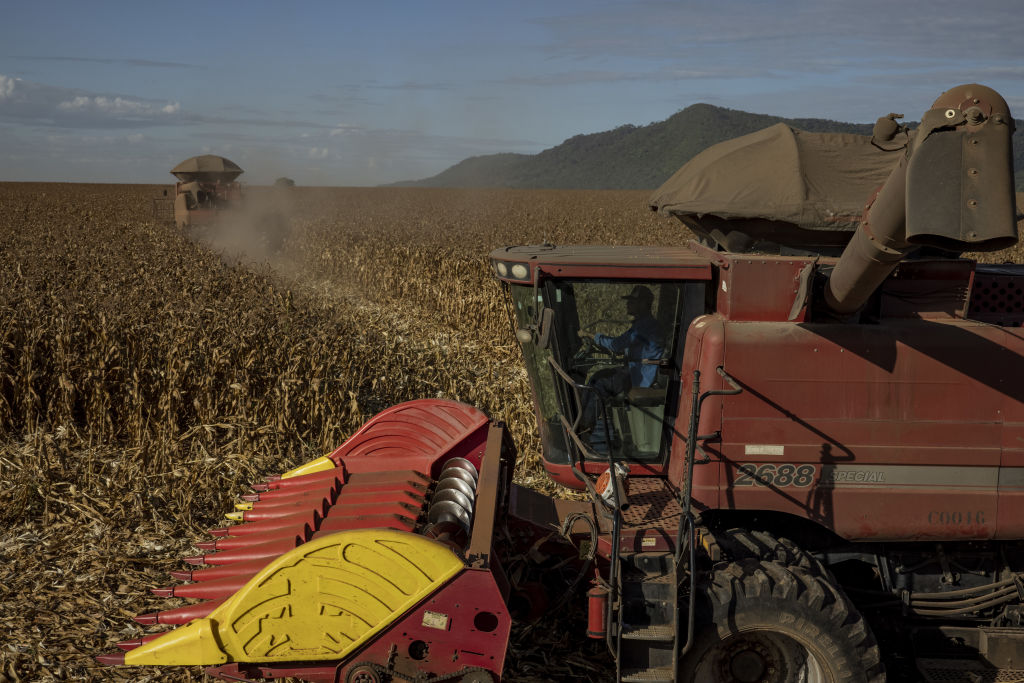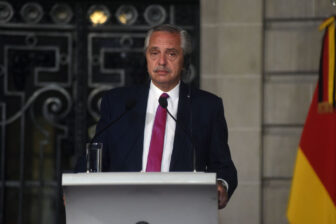SÃO PAULO – Throughout his nearly 100 days back in office, President Luiz Inácio Lula da Silva and members of his government have focused above all on two economic messages. First, that Brazil needs to “reindustrialize.” Second, that the country’s interest rates are too high. But in doing so, Lula may be focusing too much on the past, and missing the opportunities that the country could seize today.
There’s no doubt that Brazil’s economy needs a boost. The COVID-19 pandemic impacted all countries globally, but emerging economies have been hit particularly hard. Brazil, having previously endured a significant recession after an institutional crisis in the mid-2010s, has now been in a state of stagnation for more than a decade. In addition to the lack of growth, there are signs that inequality has worsened in recent years, making the goal of achieving higher welfare levels for Brazilians even more challenging. Brazilian manufacturing has also suffered. Even before the pandemic, while global manufacturing grew by 10% since 2014, Brazil’s manufacturing contracted by 15%.
A lot of time has passed since Lula’s first government, from 2003-10, and the world is no longer the same. Back then, the euro had recently been launched, the world was grappling with the aftermath of the September 11 attacks, China’s import patterns were shifting, which was expected to boost commodity prices, social media was virtually non-existent, and Brazil had just won the World Cup for the fifth time. Yes, that is how long ago all this was.
Today, the locus of productivity has shifted, with manufacturing relocating to Asia and service industries outsourced to India. Furthermore, a fresh wave of services has emerged, concentrating on delivery and transportation, digital entertainment, health, and personal care. These changes have brought forth novel modes of working relationships, demanding from policymakers a reconsideration of economic policies that foster efficient social safety nets and spur productivity.
Entrepreneurs are increasingly focused on finding environmentally sustainable ways to produce goods and services. Meanwhile, scientists and environmentalists are engaged in debates about direct carbon capture and nuclear fusion as potential solutions to combat climate change. However, capital flows to emerging economies remain scarce, posing a significant challenge to their efforts to implement these new technologies and practices.
All these changes should spell opportunity for Brazil. With a focus on environmentally sustainable production and the implementation of new technologies, Brazil can increase productivity in many sectors and create stimulus for more environmentally friendly practices. The agricultural sector is one good example. Bolsonaro’s government approved the use of 645 pesticides, of which 311 are banned in Europe. The current government could revert the decision and stimulate the use of new production technologies that are healthier for the environment and for human health. More importantly, the government could go one step further by revisiting subsidies to the small interest groups that have been expropriating the Brazilian state for decades, and reduce the complexity of our tax system a step which would significantly increase productivity in many sectors, considering out country currently has one of the most regressive tax systems of the world.
Instead, at least so far, Lula’s new government has seemed more focused on pressuring the Central Bank to lower interest rates, and maintaining, or even increasing, subsidies to a handful of sectors in the economy without any policy analysis. This suggests that old priorities, and old interest groups, still hold significant sway in policymaking circles.
The focus on Brazil’s high interest rate, which the central bank decided to maintain at 13.75%, is particularly problematic. To begin with, it is worth noting that since 2021, the Brazilian Central Bank is an independent institution that should adjust the reference interest rate in the economy to achieve its inflation target. This independence is crucial for ensuring accountability and avoiding conflicts of interest. Elected officials tend to prioritize short-term gains, which can be detrimental to keeping inflation under control. Moreover, the central bank’s independence is an institutional constraint that should be upheld for the sake of democracy, even if the government may not agree with its policy decisions.
Moreover, Brazil’s inflation target of 3.25% is consistent with other comparable countries, and there is no evidence to suggest that countries with higher targets experience lower interest rates. In fact, history has shown that sacrificing inflation targets for short-term growth does not lead to sustained economic development.
Lastly, it is important for policymakers to understand the current global economic landscape and the challenges it poses. Focusing primarily on interest rates and reindustrialization may not be enough on its own to address these complex issues and ensure sustainable long-term growth—but it is capable of creating a distraction. The question remains: Will Lula be able to incorporate a new type of left that will help pave the way for Brazil’s future?









